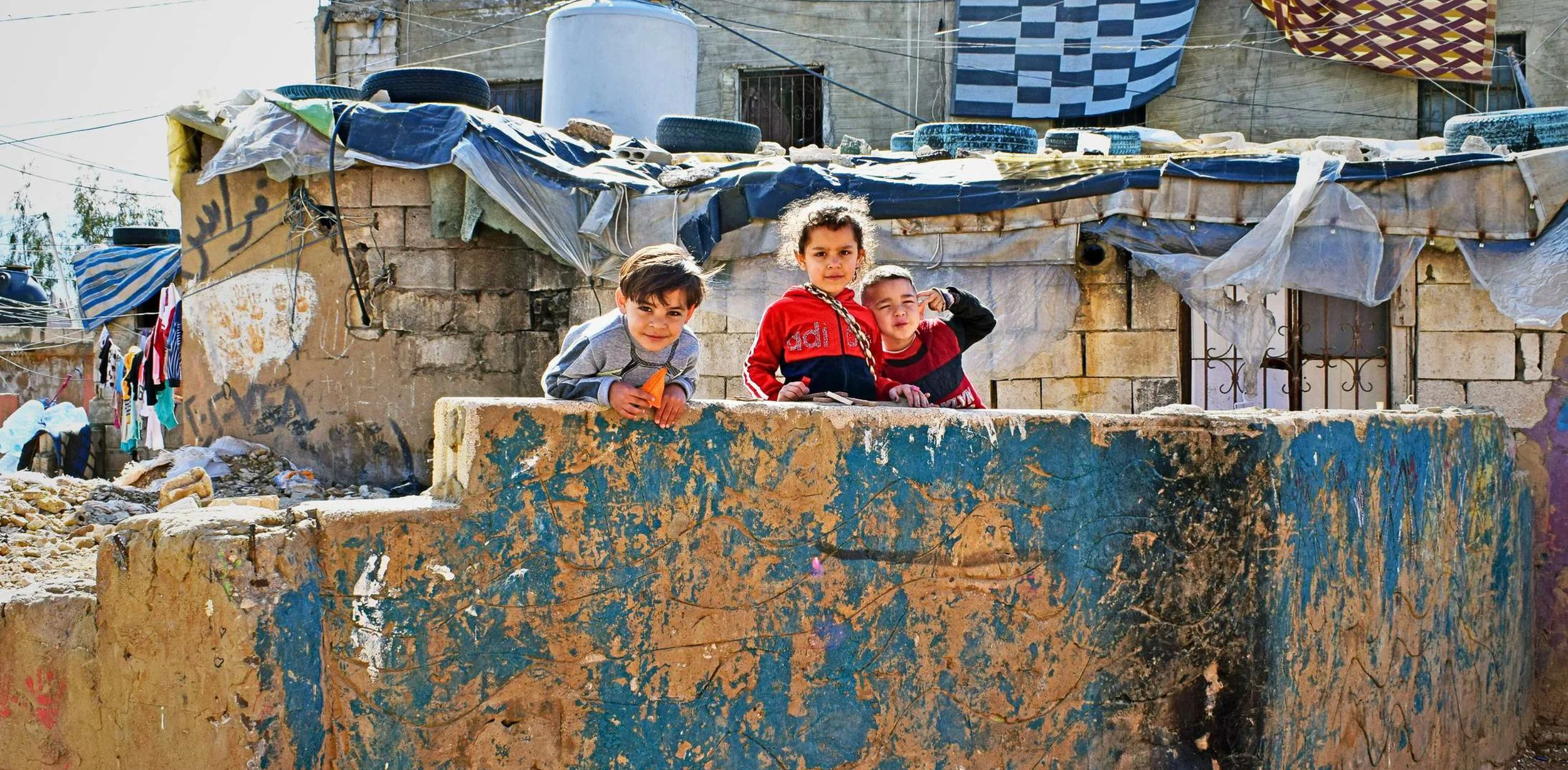Helping Lebanon’s undocumented families be seen, recognised and protected
August 2025
Many families in the informal settlement of Hay El Gharbeh in southern Beirut lack legal documents such as birth certificates or identity documents. This is more than the inconvenience of missing paperwork, it means blocked access to healthcare, education, and dignity. It means being unable to prove you exist!
Carine, a legal aid social worker, walks beside families on their journey to be seen, recognised, and protected.
“Many families arrive here feeling invisible. My role is to remind them that their lives matter. That their voice matters.”
Carine works on the legal aid team of Embrace partner Tahaddi. Meaning ‘challenge’ in Arabic, Tahaddi is dedicated to providing holistic support to help the families of Hay El Gharbeh overcome the huge range of challenges they face. Healthcare and education are two key services they provide, funded in part by Embrace, but legal support is also vital.
Many from the settlement are refugees who either have never had the opportunity to obtain the paperwork needed or lost their personal documents in the fear and confusion of having to flee their homeland. Even those who were born in Lebanon are invisible in the eyes of the law if they do not have the correct papers – and are unable to work or access services.
“One of the hardest parts of my job is explaining to someone that their rights aren’t guaranteed - all because they don’t have papers. It’s painful, but it’s also what pushes me to keep going.”
Carine joined Tahaddi in 2018 as a social worker at the health centre and became part of the legal aid team the following year, driven by a deep sense of justice and the belief that legal support should never be a privilege.
Children in the Hay El Gharbeh neighbourhood (credit: Tahaddi)
In the last six years, Carine and the team have successfully helped 750 individuals get over 1,000 legal documents – including birth certificates, marriage certificates, residency permits and identity documents - opening doors to education, healthcare, protection, and recognition.
Still, progress is slow. Since 2021, compounded crises, including COVID-19, the Beirut port explosion, and Lebanon’s economic collapse, have stalled legal proceedings and increased delays. Many refugees also face additional challenges and delays when navigating the legal system, as Carine explains:
“Stateless families are often treated with suspicion or contempt, but at Tahaddi, we’ve built a strong network - lawyers, mukhtars, and officials. Just one call from us can change how someone is treated. Even the cost of services can shift once the connection is made.”
Other hurdles can be expensive and distressing, such as the need for paternity testing. In Lebanon’s patriarchal legal system, mothers cannot pass their nationality to their children. A father's legal status becomes crucial, and without it, a child’s path to registration is nearly impossible.
To help families understand their rights and navigate the legal system, often for the first time in their lives, Tahaddi offers regular legal awareness sessions, led by an in-house lawyer.
For Carine, legal aid is about more than documentation. It is about dignity. It is about helping families believe in their voice, their worth, and their right to be seen.
“My job is not to solve everything, but to make sure people aren’t walking this journey alone. What keeps me going is knowing that even small progress matters. A signature. A court date. A mother who learns to protect her papers. These small steps can change an entire future. I hope that one day, having rights won’t depend on a piece of paper, but on our shared humanity.”
Find out more about our work in Lebanon
Life on a thriving community farm in Lebanon: It began as a small pilot project in 2021, with no guarantee of success; this year they are celebrating a bumper harvest.



